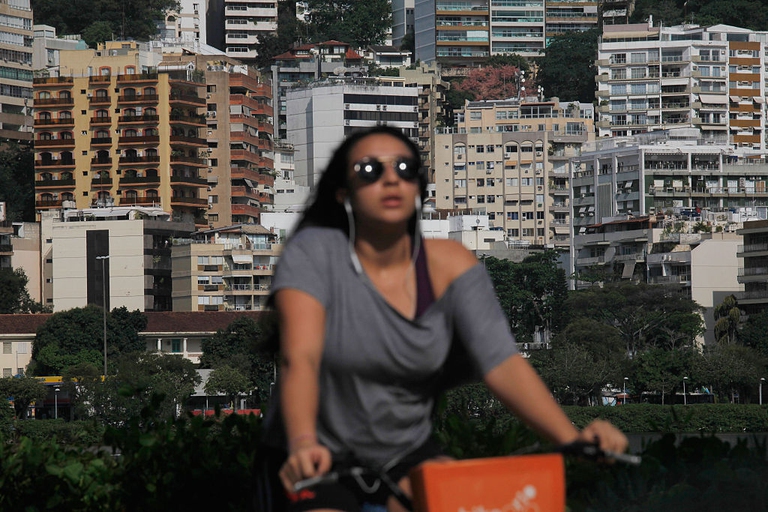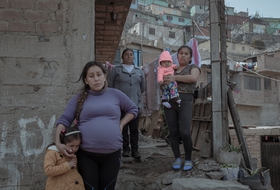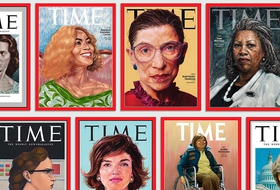
One in three women have suffered physical or sexual violence. With contributions from Europe, Africa, Asia and Latin America, we look at how this shadow pandemic affects every corner of the world.
They don’t want men to decide for them, so Kurdish women stand up for their right to ride a bike freely, also delivering books.
With orange balloons and a bicycle they are ready for a ride. They want to feel the air on their face and don’t want men to tell them not to mount on a bicycle. A group of young women held a symbolic bike ride o the city of Amuda, in Syrian Kurdistan (see video) to protest against norms that see girls on bikes as indecent. Under the slogan “free community” the girls, who named their group Newroz, state that they want to have the right to ride a bike wherever they like.
Newroz (or Nawruz or Norouz, depending on the origin and language of the person who pronounces it) is New Year’s Day for some populations of the Middle East and Central Asia, a thousand-year-old celebration inherited from the Mesopotamian populations who worshipped Zarathustra. It differs from New Year’s Eve because Newroz is celebrated in the period of the spring equinox, indeed the word literally means “new day”.
https://www.youtube.com/watch?v=_CFwFPV6DEQ
With the same spirit some women delivered books on their bicycles in Sulaimani, in the Kurdistan region in the northeast of Iraq, aiming to spread culture and reading in Kurdistan. The activists of Sofia Group did this with the hope in mind of giving books to families, mostly those including young members, because letting Kurdish women read can have a positive impact on their offspring’s lifestyle and culture. Sofia Group is a book club mainly composed of women who want to spread the free-thought culture, conscious reading and organise events such as workshops and book distribution initiatives.
In December 2015 Sulaimani was also the host city of an international conference on women and human rights that was held after the events against gender violence sponsored by the UN.
Siamo anche su WhatsApp. Segui il canale ufficiale LifeGate per restare aggiornata, aggiornato sulle ultime notizie e sulle nostre attività.
![]()
Quest'opera è distribuita con Licenza Creative Commons Attribuzione - Non commerciale - Non opere derivate 4.0 Internazionale.
One in three women have suffered physical or sexual violence. With contributions from Europe, Africa, Asia and Latin America, we look at how this shadow pandemic affects every corner of the world.
The Istanbul Convention against gender-based and domestic violence marks its tenth anniversary. We look at what it is, who its signatories are, and what the future might hold.
European Commission President Ursula von der Leyen reminded us of the gravity of violence against women around the world, and of the Istanbul Convention’s utmost importance.
President Erdoğan has pulled Turkey out of the Istanbul Convention, key in the fight against gender violence, claiming that it favours the LGBT community rather than family values.
Violence against women in Peru has increased as a result of Covid-19 lockdowns. 14,912 people were reported missing from January to November 2020, more than half of them minors and 64 per cent women. People have been confined to their homes for months, many forced to endure poor physical, economic and social conditions. A situation that
Joys Estefani Qqueccaño Huamani, 24, disappeared from her rural community in Peru on 9 October. Her family began looking for her independently of the authorities and despite the resistance of relatives of Joys Estefani’s ex-partner Arturo Ccana Condori, 32, charged with committing violence against her on 28 September, eleven days before Joys Estefani disappeared. Photos
Costa Rica celebrated its first same-sex marriage when two women, Alexandra Quiros and Dunia Araya, celebrated their wedding: an “extraordinary moment”.
The pandemic and its restrictions are affecting everyone, without exceptions. However factors like housing, income inequalities, gender, access to technology and working conditions are influencing how people experience the health crisis.
Time magazine’s 100 Women of the Year project sheds light on influential women’s stories, from Amelia Earhart to Greta Thunberg. A selection of some of the greats for International Women’s Day.








